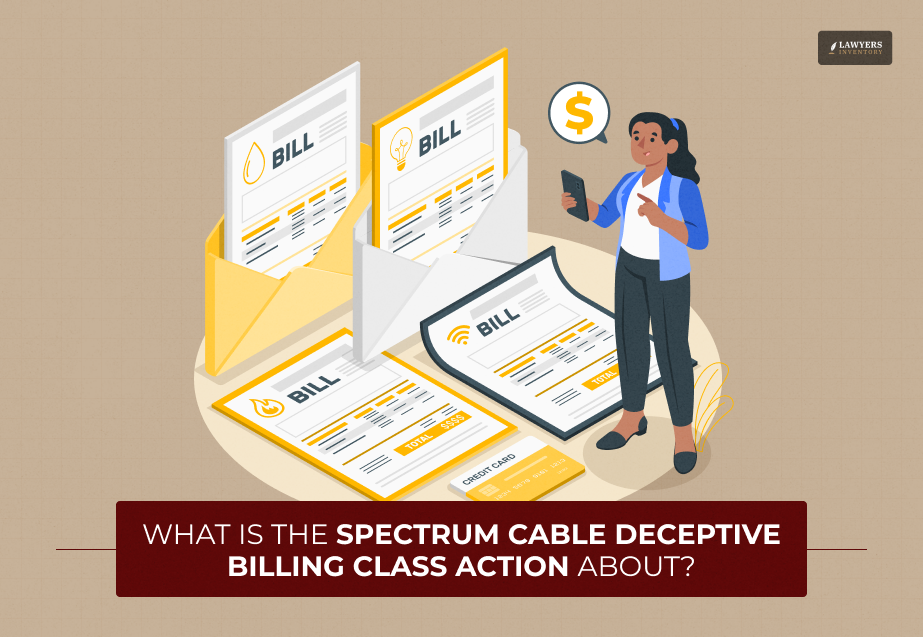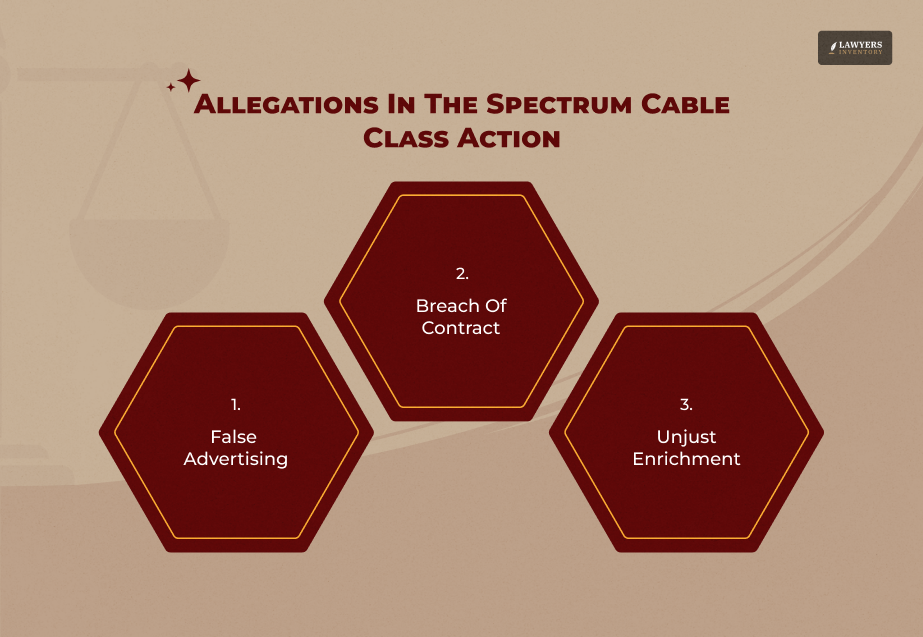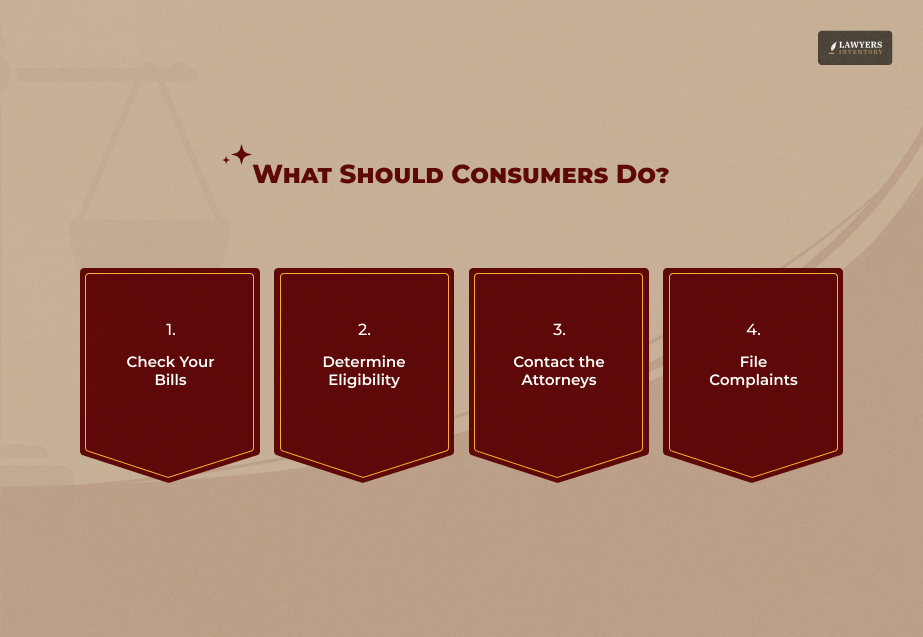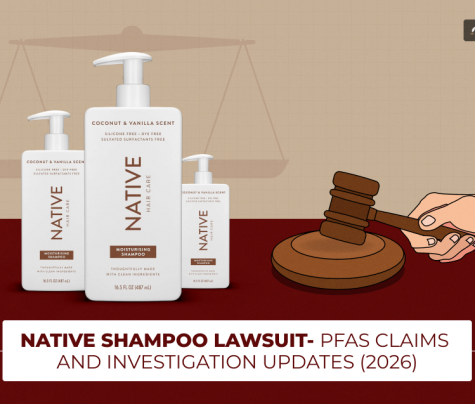
Today’s topic: Spectrum Cable Deceptive Billing Class Action.
A newly filed class-action suit accuses Charter Communications of overcharging Spectrum Cable customers through a misleading “Broadcast TV Surcharge” fee.
The main plaintiff, Richard Wookey, in his allegation against Spectrum (a branch of Charter), is saying that the company “secretly” raises the monthly rate of its cable TV service plans by hiding the increase in the Broadcast TV Surcharge.
According to Wookey, the Broadcast TV Surcharge is a “deceptive name” that is intended to make people think that it is a government-related fee or tax when, in fact, it is a “disguised” price increase.
While $28 surcharge fee might still be considered as a small amount of money, the fact that it becomes an issue again and again, especially for families that are already struggling to make their ends meet, is quite a different thing.
This is essentially the case of a growing class action lawsuit against Spectrum (Charter Communications). The case accuses Spectrum of deceptive billing practices, among which are:
- Implying that surcharges were part of the regular service.
- Introducing hidden fees.
In this article, we will talk about the following things:
- What is Spectrum, and how do they bill?
- About the Spectrum Cable Deceptive Billing Class Action lawsuit.
- The major allegations in the lawsuit.
- How did the lawsuit impact the users?
- What is the current status of the Spectrum Cable Deceptive Billing Class Action?
Therefore, if these are some of the things that you want to know, keep on reading this blog till the end…
Background On Spectrum And Its Billing Practices
Spectrum, a brand of Charter Communications, is one of the largest providers of cable television, internet, and phone services in the United States. Because of its size, any questionable billing practice impacts millions of households.
Over the years, Spectrum has faced a steady stream of billing complaints from customers. Common grievances include:
- Hidden fees are buried in monthly bills.
- Sudden rate increases after a short promotional period.
- “Retry” or “rejected payment” fees for automatic payments that fail, often without a clear warning.
- Charges for services or equipment that customers claim they never requested.
This isn’t the first time Spectrum’s billing practices have drawn scrutiny. According to Top Class Actions, in earlier cases, the company was accused of “bait and switch” tactics—advertising one price and then charging a higher one once customers signed up. Consumer frustration with these practices laid the groundwork for the current class action.
What Is The Spectrum Cable Deceptive Billing Class Action Lawsuit About?

The latest lawsuit was filed in Kentucky by Richard Wookey, a former broadcaster and Spectrum subscriber. Wookey claims that Spectrum unfairly imposed a $28 “Broadcast TV Surcharge” each month and misled customers about the nature of the fee.
According to the lawsuit, Spectrum represented the fee as if it were mandated by the Federal Communications Commission (FCC) or other broadcasters, when in reality, it was not. Plaintiffs argue that Spectrum disguised the surcharge as a “pass-through cost” to justify raising monthly bills without openly admitting it.
The lawsuit, led by Winton & Hiestand Law Group, accuses Spectrum of:
- False advertising
- Breach of contract
- Unjust enrichment
- Violating state consumer protection laws
Reports suggest that more than 4,000 customers have joined the class action in Louisville alone, with more expected to follow.
Alleged Deceptive Billing Tactics
“The lawsuit claims that any actual retransmission costs that Spectrum pays are far lower than would warrant the approximately $28-per-month Broadcast TV Surcharge issued to all Spectrum subscribers,” reports ClassAction.Org.
The lawsuit highlights several practices that customers say left them feeling cheated:
- Hidden Fees: The Broadcast TV Surcharge is at the center of the lawsuit. As Cord Cutters News reports, customers argue it was not properly disclosed and was far higher than the actual retransmission costs Spectrum paid to local stations.
- Charges for Services Not Requested: As I have already stated above, sourcing from Top Class Actions, in past cases, Spectrum has been accused of billing for premium channels or equipment that customers never ordered.
- Promotional Pricing Issues: Many customers signed up for “introductory” deals only to see bills rise steeply after the trial period, with little warning.
- Lack of Transparency: Bills often listed surcharges under vague labels, leaving subscribers in the dark about what they were actually paying for.
These practices, plaintiffs argue, were deliberately designed to mislead customers into believing they were paying less than they really were.
Legal Basis Of The Lawsuit
Legally, the case depends on the following points:
- Consumer Protection Violations: Most U.S. States have laws against UDAP. The plaintiffs assert that Spectrum breached these by concealing fees and providing false cost-related information.
- False Advertising: If the extra fee has been advertised as an FCC-mandated one while this is not the case, then it is a case of misleading advertising.
- Breach of Contract: Customers claim that there was an agreement on the base rate, and Spectrum violated that contract by adding undisclosed fees to their bills.
- Unjust Enrichment: It is said that by taking over the top surcharges, Spectrum made money without the customers’ knowledge and at their expense.
The lawsuit aims to take both the money that is rightfully owed to the complainants and the court’s intervention that could stop Spectrum from charging or misrepresenting such fees.
Impact On Customers
For individual households, the financial burden is very real. A $28 fee per month adds up to $336 per year. Over several years, this could mean hundreds or even thousands of dollars paid for a charge that customers argue was deceptive.
Beyond money, the issue has caused frustration and confusion. Many customers said they trusted Spectrum’s advertising, only to feel tricked when bills were higher than expected. That sense of betrayal is a key driver behind the class action.
News outlets like Wave3 News reported that thousands of people in Kentucky alone have signed on, underscoring just how widespread the frustration is.
Spectrum’s Defense And Response
According to WDRB News, Spectrum has denied wrongdoing and, in some cases, declined to comment on pending litigation.
The company is expected to argue that:
- Industry Standard: Broadcast fees are common across all cable providers, not just Spectrum.
- Disclosure: Spectrum claims that fees were disclosed in customer agreements and bills, even if customers overlooked them.
- Cost Recovery: The surcharge reflects retransmission fees paid to broadcasters, not hidden profit.
Still, whether the court finds these arguments persuasive will depend on how clear and accurate Spectrum’s disclosures actually were.
Current Status Of The Case?
As of mid-2025, the lawsuit is ongoing. Thousands of customers have joined the case, and the court is considering whether to certify the class action so that affected subscribers can proceed together.
Potential outcomes include:
- Refunds or Credits: Customers could receive repayment for surcharges already paid.
- Injunctive Relief: Spectrum may be ordered to change its billing practices and provide clearer disclosures.
- Settlement: Spectrum could settle the case to avoid drawn-out litigation, which is common in large consumer cases.
However, according to FairShake, Spectrum may also push back with arbitration clauses in customer contracts, which could complicate efforts to certify the class.
Spectrum Cable Deceptive Billing Class Action Timeline
Here is a complete timeline of events that are a part of the Spectrum Cable deceptive billing class action:
- June 4, 2025: Plaintiffs filed a class-action suit against Spectrum Cable. The suit accused the company of the mandatory $28 per month “Broadcast TV Surcharge,” which the plaintiffs had identified as a deceitful and non-compulsory charge. According to the plaintiffs, the company is deceiving customers by giving it as a government or third-party pass-through charge.
- Early June 2025: The lawsuit got a number of participants, and the lawyers estimated the potential size of the class to be “astronomical numbers,” that is, tens of thousands of people.
- Late July 2025: The legal-news-updates were indicating that the lawsuit was progressing and that some people might be allowed to join the action.
- November 2025: The gradual price increases of Spectrum’s internet service and the newly introduced pricing strategies were reported to be the main causes of customer dissatisfaction and turnover.
What Customers Should Know?

If you are (or were) a Spectrum cable TV customer and noticed a Broadcast TV Surcharge on your bill, you might be eligible to join the class action.
Steps you can take:
- Check Your Bills: Look for charges labeled “Broadcast TV Surcharge” or similar.
- Determine Eligibility: The current case is focused on Kentucky customers, though it may expand.
- Contact the Attorneys: Plaintiff’s counsel, Winton & Hiestand Law Group, has provided resources for affected customers. You can check out the Louisville Law Office for more information on the same.
- File Complaints Elsewhere: Even if you’re outside the class, you can report issues to your state attorney general, the FCC, or consumer protection agencies.
Read Also: Why Is HexClad Facing A Lawsuit?
What Are The Broader Implications Of The Lawsuit?
The Spectrum Cable deceptive billing class action lawsuit may have a domino effect on the entire cable and internet sector. For instance, if the courts or regulators require more explicit disclosures, other providers may be compelled to do the same.
For users, the takeaway from this story is really very basic: always check your bill carefully. If something seems incorrect, do not hesitate to raise questions. What might look like a small monthly charge could be converted into hundreds of dollars over time.
Moreover, this lawsuit highlights the importance of consumer protection statutes in holding big businesses accountable. In their absence, customers would have very limited options to fight against money-taking schemes.
The Spectrum deceptive billing class-action is not solely about a $28 fee which is raised. It is closely linked to the issues of fairness, transparency, and accountability by corporations in the promises they make to consumers through the establishment of watchdog bodies.
If the lawsuit is successful, it could result in refunds for subscribers and lead the telecommunications industry into a new era of transparency in billing. Thus, everyday customers should be on the lookout. Why? Well, to challenge the existence of hidden charges, and to rest assured that the law is on their side when billing practices take them beyond the line.











0 Reply
No comments yet.